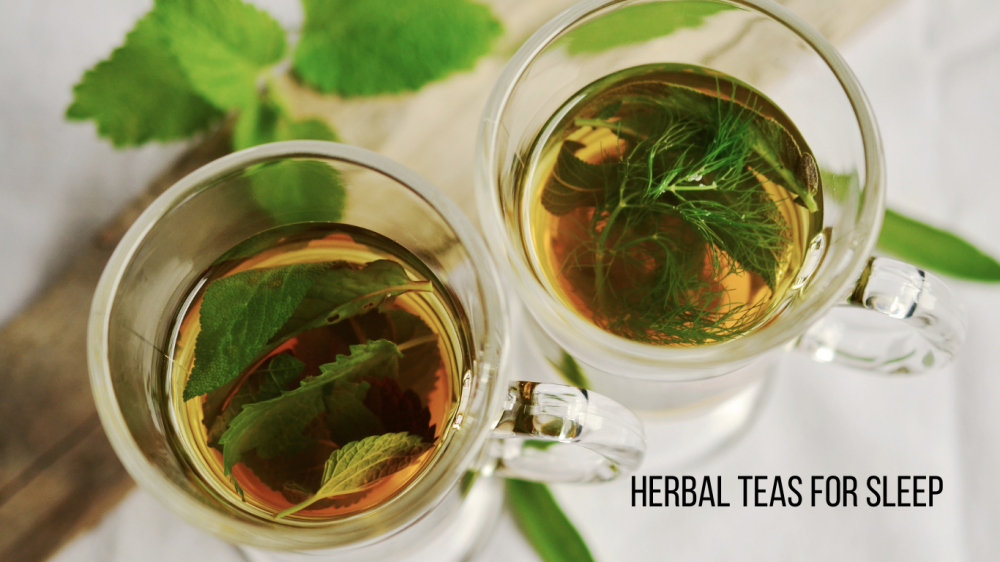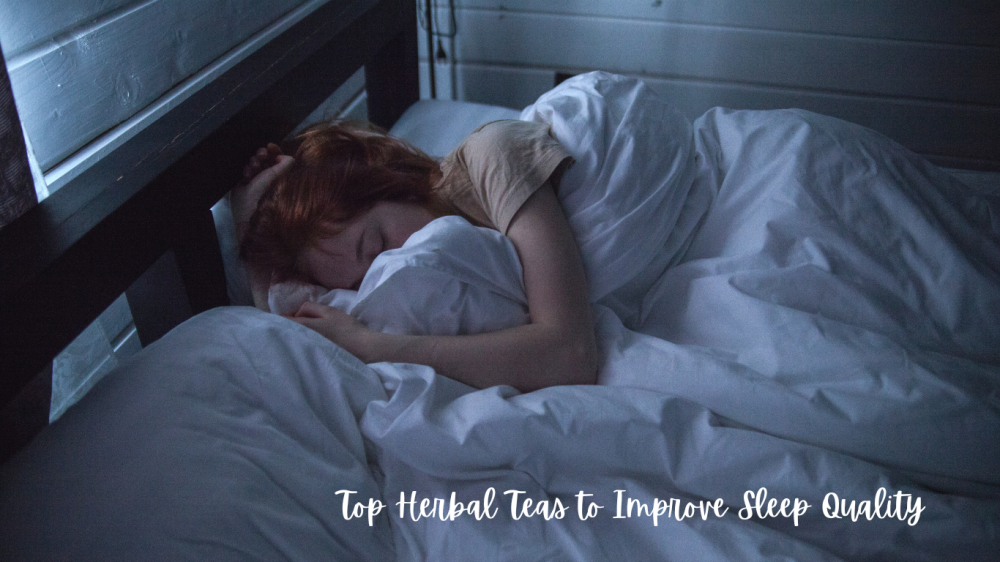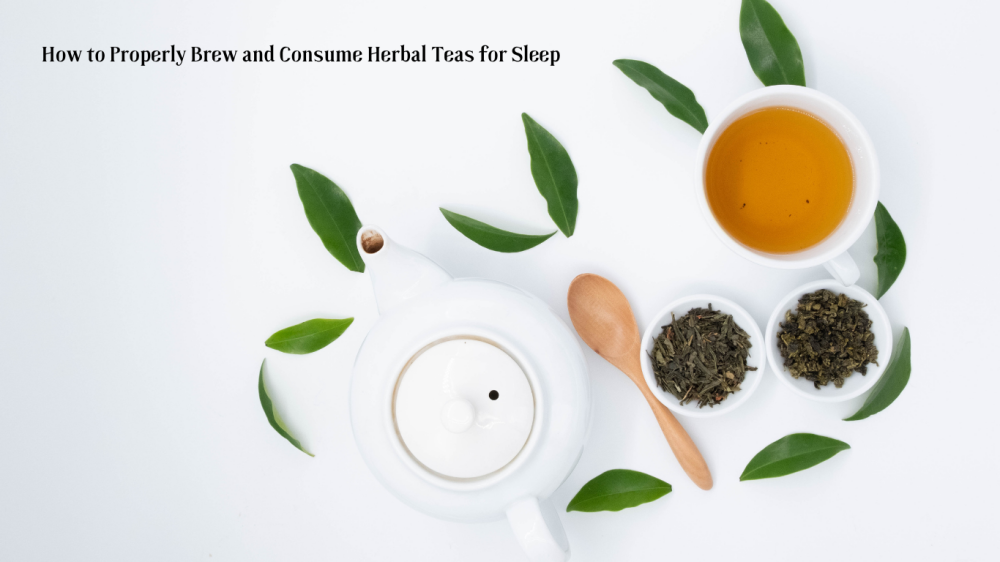
Getting a good night’s sleep isn’t just about feeling refreshed in the morning. Sleep plays a vital role in overall health and well-being. When we sleep, our bodies undergo crucial processes like healing and repair of tissues, muscle growth, and memory consolidation. Poor sleep can negatively impact mental health, weight, and susceptibility to illnesses.
Various factors can disrupt sleep patterns, such as stress, anxiety, poor diet, environmental noise, and even certain medical conditions. When sleep is disrupted, it can lead to a cycle of restless nights and groggy days, creating further stress and anxiety that makes falling asleep even harder.
Herbal teas have been used for centuries across different cultures as natural sleep aids. They are enjoyed not only for their soothing effects but also for their ability to help people unwind and relax. While modern science continues to explore the mechanisms behind herbal teas’ effectiveness, many people swear by their calming properties.
When you consume herbal teas, specific compounds in the herbs interact with the body’s natural sleep processes. For instance, some herbs like chamomile contain apigenin, an antioxidant that binds to certain receptors in the brain that may decrease anxiety and initiate sleep. Others might have mild sedative effects, helping to create a tranquil state that can facilitate sleep.
Top Herbal Teas to Improve Sleep Quality

Chamomile stands out as one of the most popular herbal teas for promoting sleep. Known for its calming effects, chamomile contains an antioxidant called apigenin, which binds to receptors in the brain that may help induce sleep. Drinking a cup of chamomile tea about 30 minutes before bed can be a soothing bedtime ritual.
Lavender tea offers another fragrant and effective option. been traditionally used to relieve stress and anxiety. Sipping on lavender tea can promote a sense of calm and improve sleep quality. The aroma alone can be quite relaxing, making it a favored choice for pre-bedtime relaxation.
Valerian root tea has a long history of use as a sleep aid. Studies suggest that valerian can reduce the amount of time it takes to fall asleep and improve sleep quality. Though its earthy taste might be an acquired one, valerian root is often recommended for people dealing with insomnia or severe sleep disturbances.
Passionflower tea is another great option for better sleep. It has been used traditionally for alleviating symptoms of anxiety and improving sleep. Modern research supports its benefits for calming the mind and aiding in falling asleep and staying asleep longer.
Lemon balm tea, with its pleasant citrusy flavor, has been known for its mild calming effects. Drinking lemon balm tea can help reduce restlessness and anxiety, creating a more favorable condition for sleep. It’s particularly useful for those who find it hard to wind down at the end of the day.
How to Properly Brew and Consume Herbal Teas for Sleep

Brewing herbal tea isn’t just about steeping a bag in hot water. Getting the most out of your tea involves a few simple steps that can enhance its effectiveness. Start with fresh, filtered water. Bring it to a boil and then let it cool slightly before pouring over the herbs. This helps preserve the delicate compounds that can promote sleep.
The best time to drink herbal tea is about 30 minutes before bedtime. This gives your body enough time to start feeling the effects. Make it a part of your nightly routine, allowing yourself to unwind as you sip your tea. Creating a consistent pattern can signal your body that it’s time to relax and prepare for sleep.
Dosage matters. Most herbal teas are safe to consume, but it’s essential to follow dosage recommendations to avoid any potential side effects. For example, too much valerian root can sometimes lead to headaches or dizziness. Generally, a cup or two is considered safe and effective.
Experiment with blending different herbs to tailor the tea to your needs. Combining chamomile with a bit of lavender can enhance the calming effects. If you’re new to herbal teas, start with single ingredients and gradually explore combinations that work best for you.
Be aware of potential side effects. While herbal teas are generally considered safe, some people may experience minor side effects. Pay attention to how your body responds and consult a healthcare professional if you have any concerns.
Additional Tips for Enhancing Sleep Naturally

Creating a conducive sleep environment is crucial. Consider darkening your room with blackout curtains and setting a comfortable temperature. Reducing exposure to electronics before bedtime can also help. Blue light from screens can interfere with your sleep cycle, so it’s wise to avoid them at least an hour before going to bed.
Diet and nutrition play a role in sleep quality. Avoid heavy meals, caffeine, and alcohol close to bedtime. Choose for light, healthy snacks if you need something before sleep. Foods rich in magnesium and tryptophan, like almonds and turkey, can be beneficial.
Incorporating mindfulness and relaxation techniques can make a significant difference. Practices like meditation, deep breathing exercises, and progressive muscle relaxation can help ease your mind, making it easier to fall asleep. Even setting aside a few minutes for a quiet read or listening to soft music can be calming.
There are times when professional help is needed. If sleep problems persist despite trying these methods, consulting a healthcare provider is a good idea. Chronic sleep issues can be a sign of underlying health conditions that require medical attention.
Integrating herbal teas into a holistic sleep routine can provide additional benefits. Combine these teas with the aforementioned lifestyle adjustments for a well-rounded approach to better sleep. Consistency is key, as establishing a nightly routine can train your body to recognize when it’s time to wind down and rest.


Recent Comments